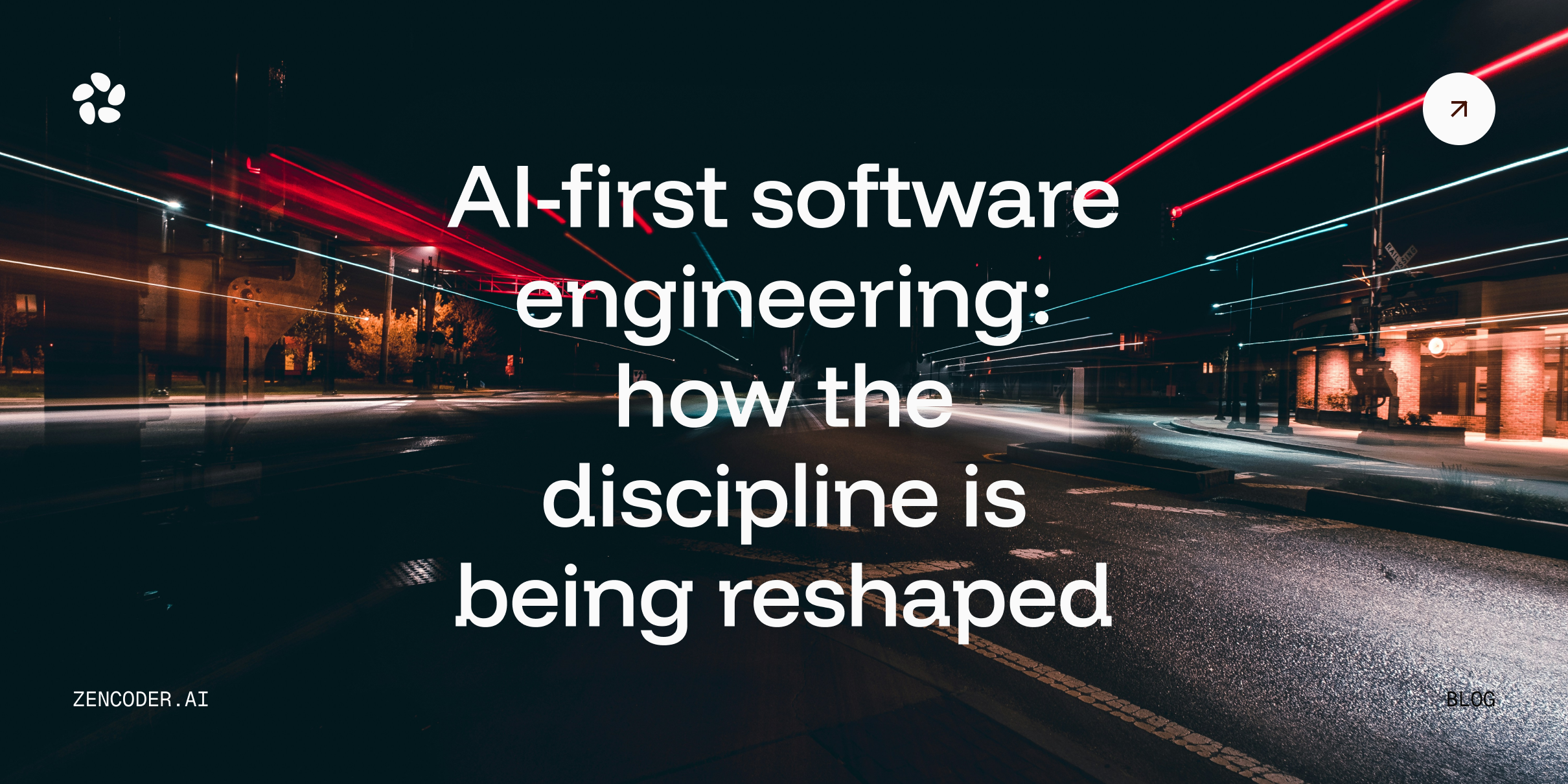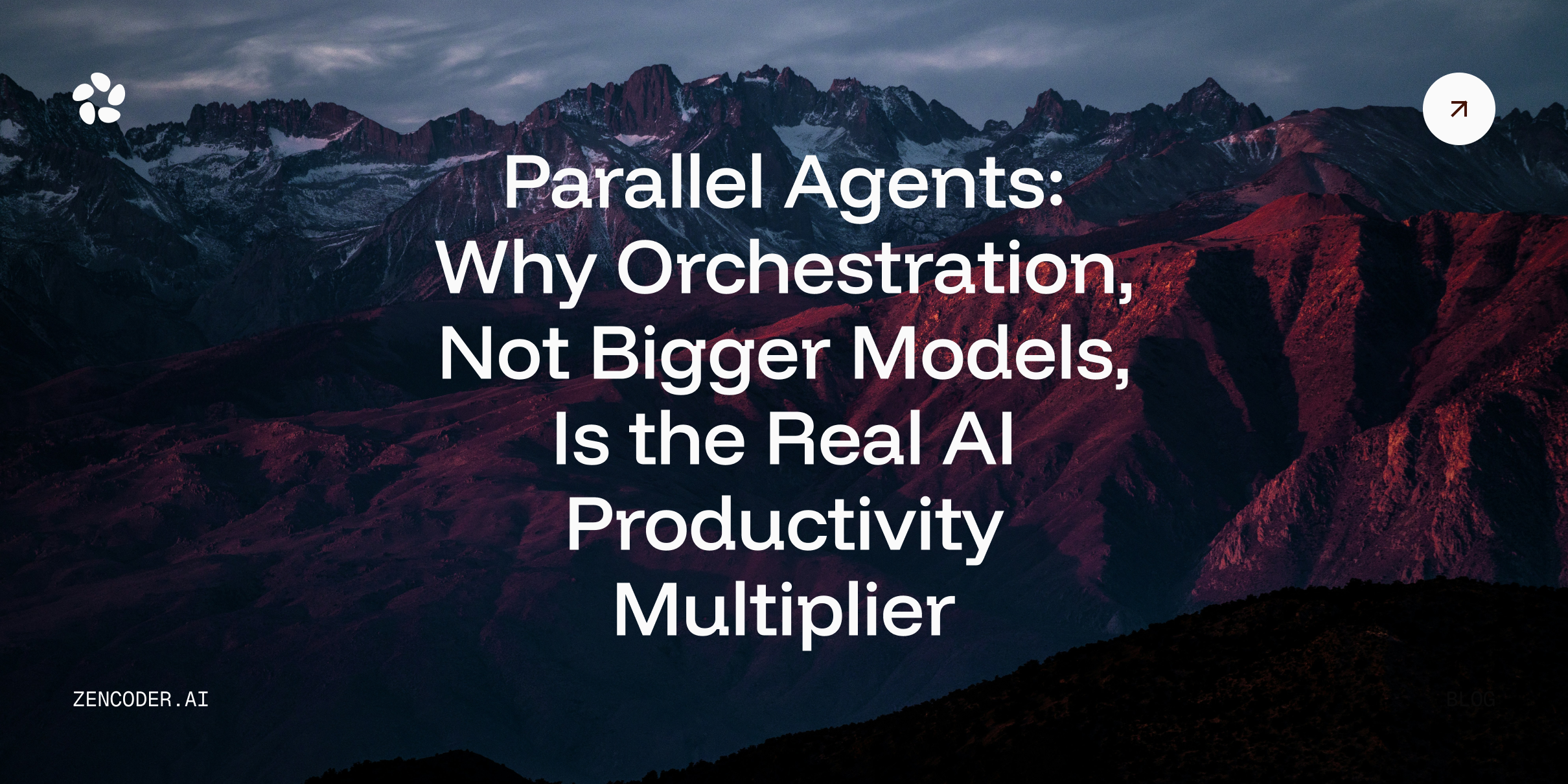Transforming Software Development
In the rapidly evolving landscape of software development, AI code generators have emerged as game-changing tools that are reshaping how developers work. As we dive into the compelling reasons to embrace these AI coding assistants, let's explore how they can supercharge your productivity, enhance code quality, and even make your coding life more enjoyable.
So, grab your favorite caffeinated beverage, and let's unpack why AI should be your new best friend in the world of ones and zeros.
1. Turbocharge Your Productivity
If there's one thing developers love more than solving complex problems, it's getting things done faster. AI code generators are here to deliver on that front, and the numbers don't lie. According to a McKinsey study, developers using AI tools performed coding tasks like code generation, refactoring, and documentation 20%-50% faster on average compared to those not using AI tools. That's right, you could potentially cut your coding time in half!
But it's not just about speed.
A research paper by Harvard Business School titled ‘Navigating the Jagged Technological Frontier: Field Experimental Evidence of the Effects of AI on Knowledge Worker Productivity and Quality’ found that AI-assisted tasks led to 43% productivity improvement among knowledge workers, including developers. Imagine what you could accomplish with all that extra time – perhaps finally tackling that side project you've been putting off, or maybe just catching up on your Netflix queue (we won't judge).
These productivity gains aren't just anecdotal. A study from Carnegie Mellon University found that developers who integrate AI programming assistants into their workflow report that over 30% of their code is written with the help of these tools. That's a significant chunk of your workload being handled by AI code generators!
2. Say Goodbye to Boilerplate Blues
Let's face it, writing boilerplate code is about as exciting as watching paint dry. AI coding assistants are here to rescue you from this mind-numbing task. These tools offer coding suggestions as you type, sometimes completing the current line and sometimes suggesting entire blocks of code.
This means you can kiss goodbye to the tedious task of writing repetitive code structures and focus on the more challenging and rewarding aspects of development.
The impact of this can be substantial. Tasks like refactoring existing code can be completed in nearly two-thirds the time with AI assistance. That's a lot of time saved on routine tasks that can be redirected to more creative and complex problem-solving.
3. Conquer the Blank Page Syndrome
Ever heard of coder’s block?
We've all been there – staring at a blank screen, cursor blinking mockingly, as we try to figure out where to start. AI code generators are like a creative spark plug for your coding engine. These tools enable developers to get in the "flow" sooner.
By providing helpful code suggestions and even generating initial drafts, AI programming assistants can help you overcome the dreaded "blank page syndrome." It's like having a coding muse on call, always ready to inspire you with a starting point. Who knows, you might even start looking forward to starting new projects!
This ability to jumpstart the coding process is particularly valuable when facing unfamiliar tasks or working with new technologies. The McKinsey study found that developers using AI tools were 25-30% more likely to complete complex tasks within given deadlines compared to those not using AI tools.
4. Level Up Your Code Quality
Contrary to what some skeptics might believe, AI code generators aren't just about churning out more code – they can actually help improve code quality. A study on developer productivity by using generative AI found that code quality in relation to bugs, maintainability, and readability was marginally better in AI-assisted code, though non-functional testing remains essential for areas like performance and scalability.
This improvement in code quality isn't just good for your ego – it has real-world implications. Better code means fewer bugs, easier maintenance, and improved collaboration with your team.
However, it's important to note that these tools are not infallible. The Carnegie Mellon research paper titled ‘A Large-Scale Survey on the Usability of AI Programming Assistants: Successes and Challenges’ highlighted that developers sometimes face difficulties when the generated code doesn't meet specific functional or non-functional requirements, or when it's hard to understand or integrate into existing projects. This underscores the importance of developers actively reviewing and iterating on AI-generated code to ensure it meets project-specific needs.
5. Accelerate Your Learning Curve
One of the most exciting aspects of AI coding assistants is their potential to accelerate learning. Whether you're a seasoned pro trying to pick up a new language or a newbie developer just starting out, these tools can be invaluable learning aids.
When developers face a new challenge, they can turn to these tools to provide the kind of help they might otherwise seek from an experienced colleague. This includes explaining new concepts, synthesizing information, and providing step-by-step guides on how to use a framework.
Who needs Stack Overflow when you've got an AI assistant at your fingertips?
This learning acceleration can have a significant impact on developer productivity and confidence. When faced with unfamiliar codebases or languages, developers using AI tools were able to get up to speed more quickly and perform tasks that would typically require more time or the help of a colleague.
6. Boost Your Job Satisfaction
Here's a fun fact: developers using AI tools were more than twice as likely to report overall happiness, fulfillment, and a state of flow, according to insights from a developer productivity report. It turns out that automating the grunt work not only makes you more productive but also happier in your job.
This improvement in job satisfaction isn't just good for your mental health – it's good for business too. Happy developers are more likely to stick around, reducing turnover and the associated costs of hiring and training new staff. So, by integrating AI code generators into your workflow, you're not just making your life easier – you're potentially saving your company money. Talk about a win-win!
The impact on job satisfaction extends beyond just individual happiness. The developer productivity report further notes that developers using AI tools reported feeling more engaged with their work and more able to focus on creative and challenging aspects of development. This increased engagement can lead to better problem-solving, more innovative solutions, and ultimately, better software products.
Tackle Complex Challenges with Confidence
Remember those times when you've been faced with a particularly thorny coding problem and wished you had a genius programmer on speed dial? Well, AI code generators are kind of like that, minus the awkward small talk.
Generative AI-specific research found that developers using generative AI tools to perform complex tasks were 25 to 30 percent more likely than those without the tools to complete those tasks within the given time frame.
This ability to tackle complex challenges more confidently can have a ripple effect throughout an organization. As developers become more adept at solving difficult problems, they can take on more ambitious projects, potentially leading to more innovative and competitive software solutions.
Streamline Your Documentation Process
Let's be honest – documentation is often the least favorite part of a developer's job. It's crucial, but it's also time-consuming and, let's face it, not always the most exciting task. This is where AI code generators really shine.
According to McKinsey Digital, documenting code functionality for maintainability can be completed in nearly half the time, and optimizing existing code (called code refactoring) in nearly two-thirds the time with AI assistance.
Imagine cutting your documentation time in half – that's more time for actual coding, or maybe even sneaking in an extra coffee break.
But it's not just about saving time. Better documentation leads to more maintainable code, easier onboarding for new team members, and improved collaboration. By making the documentation process less painful, AI tools can encourage developers to document more thoroughly, leading to better long-term outcomes for software projects.
Stay Competitive in a Rapidly Evolving Field
In today's fast-paced tech world, staying ahead of the curve is crucial. AI code generators aren't just a fancy new toy – they're becoming an essential tool in a developer's kit. According to the Global DevSecOps Report from GitLab, 83% of those surveyed said that implementing AI in their software development processes is essential.
Furthermore, Gartner predicts that 50% of enterprise software engineers will use machine learning-powered coding tools by 2027. By integrating AI code generators into your workflow now, you're not just keeping up with the trend – you're positioning yourself at the forefront of the industry.
This adoption of AI tools isn't just happening in software development. According to recent AI Automation statistics compiled by Flair HR, 88% of small business owners say automation enables competition with larger companies. In the finance sector, 60% of retailers have integrated AI, jumping from 35% the previous year. This widespread adoption across industries underscores the growing importance of AI tools in staying competitive.
Embrace the Future of Coding
Last but not least, integrating AI code generators into your workflow is about embracing the future of coding. The global spending on AI was around $342 billion in 2021, with projections of an 18.8% growth rate in 2024, aiming for $500 billion. This massive investment signals that AI is here to stay and will only become more integral to software development in the future.
By adopting these tools now, you're not just improving your current workflow – you're preparing yourself for the future of coding. It's like being one of the first people to use version control or adopt agile methodologies. You're not just following a trend; you're riding the wave of the future.
The potential impact of AI on the global economy is staggering. According to PwC’s ‘Sizing the Prize’ report, AI and Machine Learning could add $15.7 trillion to the global economy by 2030. In the specific context of coding, AI is anticipated to create 12 million more jobs than it replaces, and by 2025, the AI industry may need 97 million specialists.
Challenges and Considerations
While the benefits of AI code generators are numerous, it's important to acknowledge that there are challenges and considerations to keep in mind:
- Code Quality and Understanding: As noted in the Carnegie Mellon study, developers sometimes struggle with AI-generated code that doesn't meet specific requirements or is difficult to understand. It's crucial to review and understand AI-generated code thoroughly.
- Overreliance: There's a risk of becoming overly dependent on AI tools. Developers should maintain their core coding skills and use AI as a supplement, not a replacement for fundamental knowledge.
- Security and Intellectual Property: According to Webroot’s 2019 survey, 84% of Intellectual Property professionals in the US and Japan perceive a significant risk of AI-enabled criminal activities. It's important to be aware of potential security risks and intellectual property issues when using AI coding tools.
- Learning Curve: While AI tools can accelerate learning, there may be an initial learning curve in effectively using these tools. Organizations should provide proper training and support for developers adopting AI coding assistants.
- Cost Considerations: While AI tools can lead to significant productivity gains, there may be costs associated with implementing and maintaining these tools. Organizations should carefully consider the return on investment.
Best Practices for Integration
To make the most of AI code generators in your workflow, consider these best practices:
- Start Small: Begin by integrating AI tools into smaller, less critical projects to get a feel for how they work and their impact on your workflow.
- Continuous Learning: Stay updated on the latest developments in AI coding tools. The field is rapidly evolving, and new features and capabilities are constantly being added.
- Collaborate and Share: Encourage knowledge sharing among team members about effective ways to use AI tools. What works well for one developer might be helpful for others.
- Maintain Critical Thinking: While AI can provide helpful suggestions, it's crucial to maintain your critical thinking skills. Always review and understand the code you're using, whether AI-generated or not.
- Customize Your Experience: Many AI coding tools allow for customization. Take the time to tailor the tool to your specific needs and coding style for optimal results.
Conclusion
Integrating AI code generators into your workflow isn't just about keeping up with the latest tech trends. It's about supercharging your productivity, enhancing code quality, accelerating your learning, boosting job satisfaction, and positioning yourself at the forefront of the industry.
From slashing the time spent on boilerplate code to conquering complex challenges with confidence, AI coding assistants are transforming the way we write code. They're not here to replace developers but to augment our skills and free us up to focus on the most challenging and rewarding aspects of software development.
As we've seen from the various studies and statistics, the impact of AI on software development is significant and growing. With potential productivity gains of up to 50%, improved code quality, and increased job satisfaction, the benefits are clear. However, it's also important to approach these tools with a critical eye, understanding their limitations and potential challenges.
As the field of AI continues to evolve, we can expect even more sophisticated and helpful programming assistants in the future. By embracing these tools now, you're not just improving your current workflow – you're preparing for the future of software development.
So, why not give it a try? You might just find that your new AI coding buddy becomes your favorite coworker – one that never steals your lunch from the office fridge or talks your ear off about their weekend plans. Happy coding!


_%20The%20Engineering%20Method%20AI%20Needed%20(1).webp)
